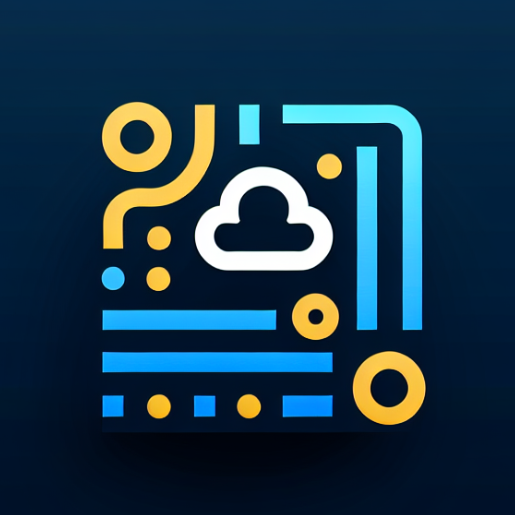Transform Document Silos into Actionable Knowledge: Minimize Search Costs, Maximize Control with Open-Source Docling.
Businesses accumulate vast amounts of critical information locked away in documents – policies, manuals, reports, contracts, research papers, meeting notes, and more. Finding specific information within these silos is often a time-consuming, manual process. While Large Language Models (LLMs) offer powerful capabilities, enabling them to effectively interact with your specific document knowledge base presents technical challenges, raising concerns about data privacy when using third-party cloud services.
You need a secure, efficient way to make this document-based knowledge accessible and queryable using the power of AI, without sacrificing control or incurring exorbitant costs. Docling provides that solution. As an open-source platform for processing and querying documents with LLMs, Docling empowers your team to extract insights and find information rapidly. By offering Docling within our self-hosted open-source solutions, we enable you to leverage your internal knowledge base securely and cost-effectively, embodying our principles of “Minimize Costs, Maximize Control.”
What is Docling?
Docling is an open-source application designed to process various document formats and make their content searchable and interactable using Large Language Models. It acts as a secure layer that understands your documents and allows you to ask questions and receive answers grounded in the information contained within them.
At its core, Docling facilitates a process known as Retrieval Augmented Generation (RAG). This involves breaking down documents into smaller chunks, creating numerical representations (embeddings) of these chunks, storing them in a searchable format (often a vector database), and then using these relevant chunks to inform an LLM’s answer when you ask a question.
Being open-source and self-hostable means Docling keeps your sensitive document data entirely within your infrastructure, offering unparalleled security, privacy, and control.
How Docling Works (Putting Documents to Work with AI):
- Document Ingestion: Upload or connect Docling to your documents (e.g., PDFs, DOCX, TXT, etc.).
- Processing (Chunking & Embedding): Docling automatically processes your documents by breaking them into manageable sections (“chunks”) and creating high-dimensional numerical vectors (“embeddings”) for each chunk using specialized AI models. These embeddings capture the semantic meaning of the text.
- Indexing: The embeddings are stored and indexed, typically in a vector database, creating a searchable knowledge index of your documents.
- Querying (Ask a Question): When you ask Docling a question, it creates an embedding for your question.
- Retrieval: Docling searches its knowledge index (vector database) to find the document chunks whose embeddings are most semantically similar to your question’s embedding.
- Augmented Generation (LLM Interaction): Docling sends your original question along with the most relevant retrieved document chunks to a connected LLM. The LLM then uses this provided context from your documents to formulate an accurate and relevant answer, reducing the risk of hallucination.
- Response: Docling presents the LLM’s answer, often citing the specific document sources it used.
This process allows LLMs to access and utilize the specific, up-to-date information within your private document collection, going beyond their general training data.
Key Capabilities for Document AI and Knowledge Management:
- Multi-Format Document Ingestion: Support for processing a wide range of document types (PDF, DOCX, TXT, etc.).
- AI-Powered Search & Querying: Ask natural language questions about the content of your documents.
- Context-Aware Responses: Receive answers from the LLM that are directly based on the information in your specific documents (RAG).
- Source Citation: See which parts of which documents were used to generate the answer.
- Scalable Processing: Handle large volumes of documents to build a comprehensive knowledge base.
- Connects to LLMs: Configure Docling to work with various LLM providers (both self-hosted and potentially certain external APIs, though self-hosted is key for privacy).
- User Interface: Provides a web interface for uploading documents and interacting with the AI knowledge base.
- API Access: Offers an API for programmatic access, allowing integration with other systems or custom applications.
- Security & Permissions: Control access to documents and the Docling instance, especially important in a self-hosted environment.
Handling Your Valuable Document Data:
Docling is built around the principle of using your data, often residing within your network. While simple file uploads are supported, advanced deployments can involve connecting to internal document repositories or network shares, ensuring your documents remain under your administrative control throughout the processing and querying lifecycle. The embeddings and the vector database containing the representation of your data are also hosted securely within your infrastructure.
This approach is fundamentally different from sending your proprietary documents to a third-party cloud service for processing or querying, offering a superior level of data security and compliance.
The Strategic Advantage: Self-Hosting Docling with Us
Implementing Docling through our self-hosted open-source solutions delivers powerful strategic benefits aligned with a “Minimize Costs, Maximize Control” mandate:
- Maximum Data Security & Privacy: Your sensitive, proprietary document data never leaves your infrastructure. Processing, indexing, and querying all happen within your secure environment, eliminating concerns about third-party access or compliance issues related to data residency.
- Cost Efficiency: Avoid variable costs typically associated with cloud-based document AI services (per document, per query, per user fees). Self-hosting provides predictable infrastructure costs, significantly driving down licensing costs for leveraging AI on your documents, especially at scale.
- Complete Control & Ownership: You own and manage the entire Docling instance and the underlying infrastructure. This gives you full control over configuration, security updates, performance optimization, and scalability, ensuring true freedom from vendor lock-in.
- Customization & Integration: As an open-source tool with an API, Docling can be customized or integrated with other internal tools and workflows. For example, you could potentially use an automation tool like n8n to trigger document ingestion pipelines or pull search results into other business processes.
- Seamless Integration Ecosystem: Deploy Docling alongside other self-hosted open-source solutions we offer (like NocoDB for structured data or internal communication tools), building a cohesive and controllable data and AI infrastructure.
- Dedicated Expert Support: Benefit from our expertise in deploying, configuring, and maintaining Docling and the necessary underlying infrastructure (like vector databases, if required), ensuring a robust, secure, and high-performing document AI solution.
Common Docling Business Use Cases:
- Internal Knowledge Base Search: Allow employees to ask questions and get answers from company policies, HR documents, training manuals, technical documentation, and internal reports.
- Legal Document Review: Quickly find relevant clauses or information across a large corpus of contracts or legal filings.
- Research & Analysis: Query large sets of research papers, market reports, or industry analyses to extract key findings and trends.
- Customer Support Enablement: Empower support agents to find answers quickly within product manuals, FAQs, and past support interactions.
- Onboarding & Training: Provide new employees with an interactive way to learn about company procedures and resources by querying internal documents.
- Competitive Intelligence: Analyze competitor reports and public documents by asking targeted questions.
Conclusion:
Docling offers a secure, powerful, and cost-effective way to unlock the valuable information contained within your business documents using the latest AI capabilities. By providing an open-source, self-hostable platform for AI-powered document interaction, Docling helps you overcome the limitations of manual search and proprietary cloud services. Choosing Docling through our self-hosted solutions empowers you to leverage your internal knowledge base securely, maintain complete control over your data, minimize costs, and drive efficiency across your organization.
Ready to make your document knowledge instantly accessible and actionable?

